"I Am Concerned About The Future" — Seasoned Educators Are Sharing The Modern Parenting Trends That Have Got To Go
Recently, parents and teachers shared the modern parenting methods that they think are doing more harm than good. Since then, hundreds more teachers and educational professionals from the BuzzFeed Community have come forward to write out their parenting opinions — including both the bad and good.

Since parenting is a bit of a hot topic right now, I thought I'd compile more of the opinions teachers shared. Here's how it will work. First, I'll share the parenting trend the educational professional disagrees with; then, I'll share what they agree with instead right below it. Got it? Cool, let's get into all the opinions below:
1."The 'parent principal.' This parent believes they have seniority and superiority over the teacher. They expect the teacher to meet their every request or demand. Inferentially, the parent subtly threatens the teacher by referring to the school principal by first name, or worse, CC'ing the principal to indicate they are putting the bigwigs in the convo (yes, someone did that to me!). The best way to deal with this overbearing, narcissistic, and demeaning behavior is to take the high road, lead by example, and be a professional... in the softest voice possible. Period! Then CC all appropriate people."

—Teacher for 21 years, 57
Here's what they agree with instead:
"Teacher and parents co-sharing student academics and classroom management. Once, I called a parent about their son's behavior. They responded appropriately to what I said and how I said it and matched me with energy and understanding. When the student came to the school the next day, they immediately apologized, corrected their behavior, and they had a good day. I immediately emailed the parent and let them know how well the student had responded to the critique of ' their behavior' not 'them.' I was so pleased to see a parent respond in a way that showed understanding that the behavior must be corrected for learning to take place. (Now, as to what she did, I don't know. But it worked.)
Too often, the parent responds defensively when a teacher calls about their child's behavior, usually because they are frequently inundated about the bad stuff. It is so important for teachers to call out a child's self-correction and include an email about how that child's behavior changed so that the parent feels better as well as the child. This builds better rapport and relationships between all concerned."
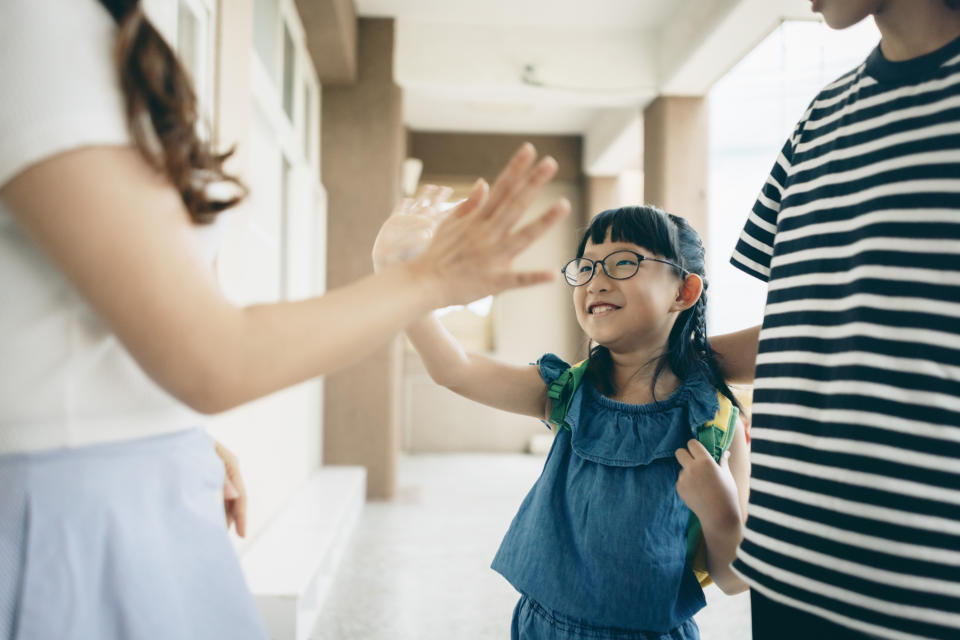
2."Letting the internet raise our kids. So instead of a caring, fun parent or mentor to grow empathy with and hands-on play, we have kids learning violence from movies and video games and lacking basic math, reading, and life skills."
—Artist/writer and substitute teacher for 25 years, 76
Here's what they agree with instead:
"Starting at birth with a smiling, laughing person to interact and do things with as baby grows. No screens, including TV, until mid-teens, but books, activities like blocks, sandboxes, sewing, paper or a wall to draw or paint on, cooking, gardening, etc., with some or no adult participation or guidance, depending on the activity."
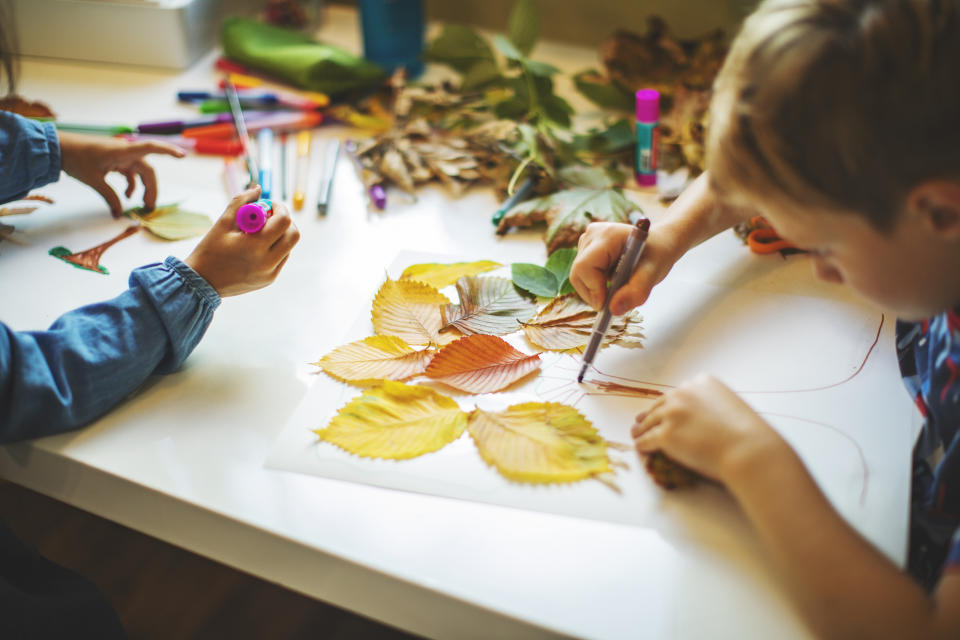
3."God, so many [parenting tactics] drive me up a wall. I think the biggest one during the summer is just how willing parents are to drop their kids off at the public library for the full eight hours we're open to the public. Hell, I've seen kids get dropped off before we open and have to wait outside in the heat... in Florida. All because the parent can't or won't look into options for childcare. We are a LIBRARY, not a babysitter (I could get paid more to be a nanny/babysitter!! But I don't want that, lol). Yet people drop their kids off with us and leave them here all day."
"90% of them don't have lunch or anything to eat, and they rarely even know their parent's phone number (they don't always even know their own last name). It's one thing if the kid is a bit older, say 14+, but I've had kids as young as 7 try to be dropped off to spend the day at the library. And it's not like the kids are coming in and reading or participating in events and programs we have going on. They just spend their whole time on Roblox. Most of them barely listen to our rules; they scream, yell, and run. And when they get their three warnings (and that I will turn the computers off if they keep misbehaving), they throw full-blown tantrums! They really do not understand NO and not getting what they want."
—Children's librarian for 8 years, 34
Here's what they agree with instead:
"There are very few. Honestly, the only thing I agree with is the rise in actually explaining to your kid why you're doing certain things. I don't see this done nearly as much as I'd like, but occasionally, when I do see it, it's refreshing. I wholeheartedly believe in talking to kids, even babies, with normal voices and explaining what and why you're doing things to help children process and gain understanding."
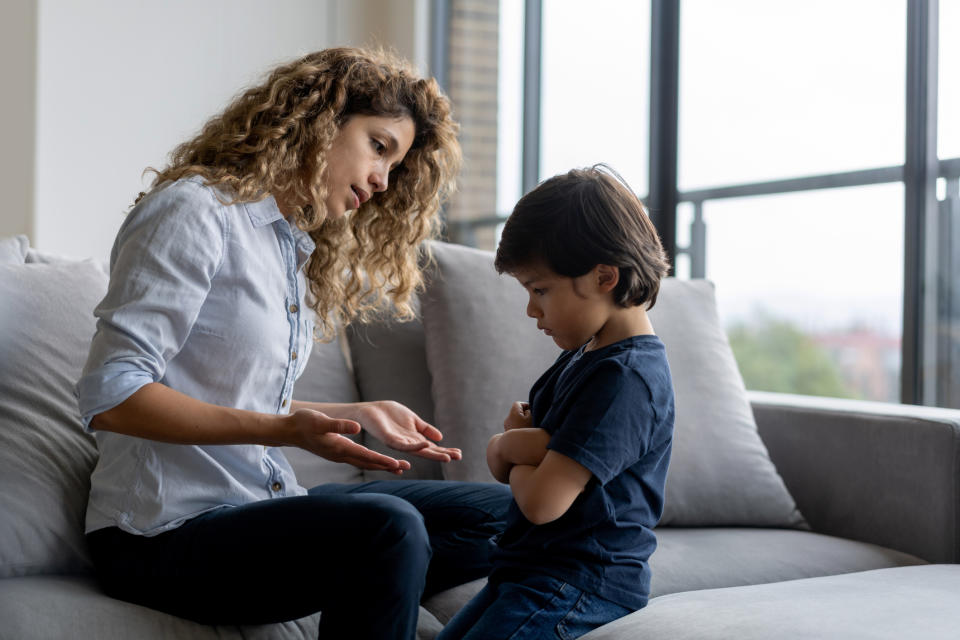
4."Unparenting/friending your child. Being a 'cool parent,' or the 'yes parent.' Showering them with things, saying yes to inappropriate requests with little to no boundaries, believing saying no is a bad thing, attacking anything or anyone who attempts to establish rules or expectations a child deems unfair or too hard just didn't want to do. It's creating children who cannot thrive in real-world situations that require hard work, critical thinking, and adaptability. Children are having major emotional regulation problems because parents shelter them from negative experiences and point fingers at others. They don't learn to be accountable for their actions."
—Educator and childcare professional for 20 years, 45
Here's what they agree with instead:
"Positive parenting and the family functioning model. It builds strength in individuals and focuses on healthy boundaries, putting the family unit first, and is a positive strength-based approach. It's not authoritarian or passive. Children and families work on building core values, communication, respect, integrity, and accountability."
5."Teaching your children about real historical events and other people’s cultures and perspectives is NOT us 'having a political agenda' or trying to 'brainwash' your kids. People and children need to learn how to have an educated conversation and exchange ideas in a respectful way. You are doing your child a disservice by shielding them from everything you deem unworthy or does not fall within the realm of your opinion. Plus, if we could brainwash your kids, we would get them to bring pencils to class—but since we can’t even do that, that’s clearly not the case."

–English teacher for five years, 36
Here's what they agree with instead:
"I think paying attention to a child’s social and emotional well-being is important- especially in this tech-based society. These kids have to face challenges with the negative impacts of technology that we never had to. I’m happy that mental health is something that is widely talked about and accepted (generally)."
6."I have just finished my last year of teaching, although I didn't plan it that way. As a mother, grandmother, teacher, and nurse, I've seen it all. This year, though, I had some of the best and the very worst students ever due to differences in parenting styles. I had students who would look into my eyes and lie, steal from their classmates and me, and cheat without remorse. When I met my students' parents, I could tell exactly why my students were the way they were, for better or worse.

"Some of the parents themselves behaved with breathtaking disrespect, rudeness, and gall. I could give you more than a few reasons for the current teacher shortage! I am very concerned about the future of classroom education in the face of the societal changes that have taken place over the last 15-20 years, especially in the area of parenting."
—Retired third grade teacher for 12 years, 62
Here's what they agree with instead:
"Thoughtful, responsible parents that teach their children that they are not the center of the universe; that their actions and attitudes affect others. Their children learn to be accountable for and accept the consequences of their own choices. They do not expect constant rewards for ordinary civil behavior. Children raised in this way appreciate structure and boundaries and can be taken anywhere because they have been taught to be kind and polite and have never formed the habit of throwing tantrums if their demands are not met instantly. My grown children have very different parenting styles, and it shows. We love our grandchildren, but we have a hard time being around some of them for a very long time because of their parents' permissiveness and refusal to provide consequences for bad behavior."
7."The 'do nothing' parent. No interest, no parenting, no responsibilities, no consequences."
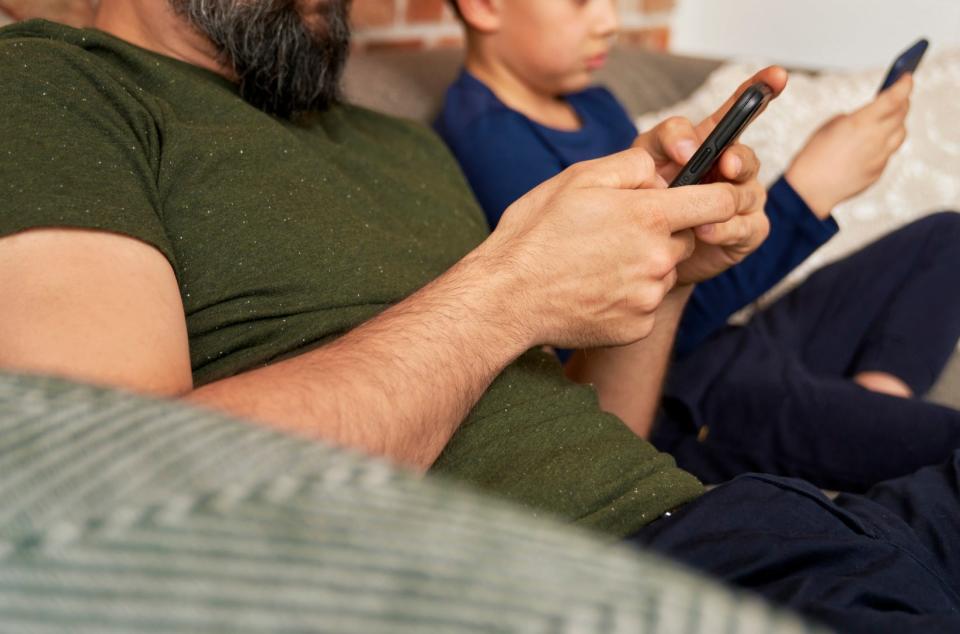
–High school teacher for over 15 years, 59
Here's what they agree with instead:
"Parents who are involved, know their kid needs guidance, and engage and participate with the educator, not work against them. This is a team effort, but without the steady hand of a parent or guardian, no amount of strategy or teaching tricks will help. If the parent has checked out, the kid is out, too."
8."Honestly, the device usage is the worst part. I worked with 3-year-olds who had their own phones, and they were barely interested in playing or anything else. They didn't even want to color. It's just really painful because now, as the director of a GED program, I'm seeing the results of the earliest parts of this trend. Students practically go through withdrawal when we ask them to put their phones down."

—Education director, 33
Here's what they agree with instead:
"I do love that we are trying to be more understanding of the emotions of little ones. Though sometimes I do find myself with my mom's voice in my head telling me that sometimes you gotta just suck it up."
9."I firmly disagree with giving rewards to children for doing what they should already be doing. Example: 'I'll buy you a video game if you make your bed.' I hear students say, 'What do I get if I do my work?' They don't like hearing an education! They want a material prize."
—First and second grade teacher for 30 years, 64
Here's what they agree with instead:
"I agree with setting a challenging goal, celebrating its completion, and then setting another challenging goal. Real growth happens when you challenge yourself."
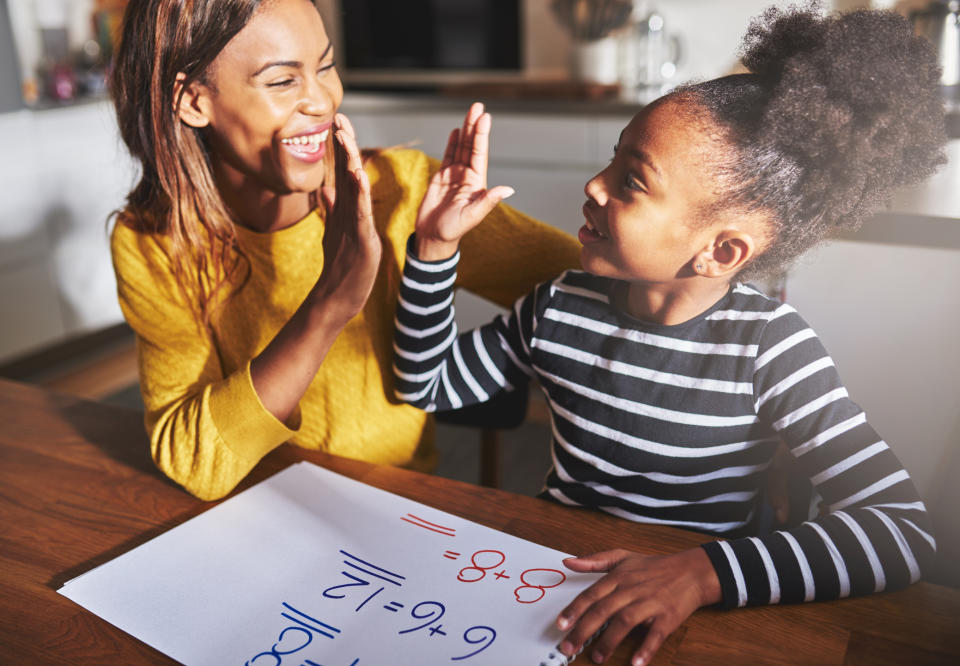
10."Students are not responsible or accountable for their actions. Parents usually have an excuse ready. This is unhealthy for the child. They will not be ready for the world of work or following the law. Who will defend them when caught cheating in college or when they break a law? It is just so sad because we are not raising children to be functional, contributing members of society."
—8th grade English teacher for 24 years, 64
Here's what they agree with instead:
"I appreciate parents who teach their children to appreciate and respect others. They are not allowed to behave as if they are the only child that matters. They are taught compassion and empathy. There are still some good trends out there, but the amount of time used in the classroom to deal with the problems of students who are not raised with these basic skills is unfair to those students who come to school and expect and want to learn."
11."Giving kids a phone without monitoring it! You wouldn't believe the stuff they're looking at, the stuff they're saying to each other (and to complete strangers)! Apps from companies such as Bark can help parents sift through it all. Most parents mean well; they just aren't aware of the scope of the problem because when they were students, the cybersphere was not as all-consuming as it is now."
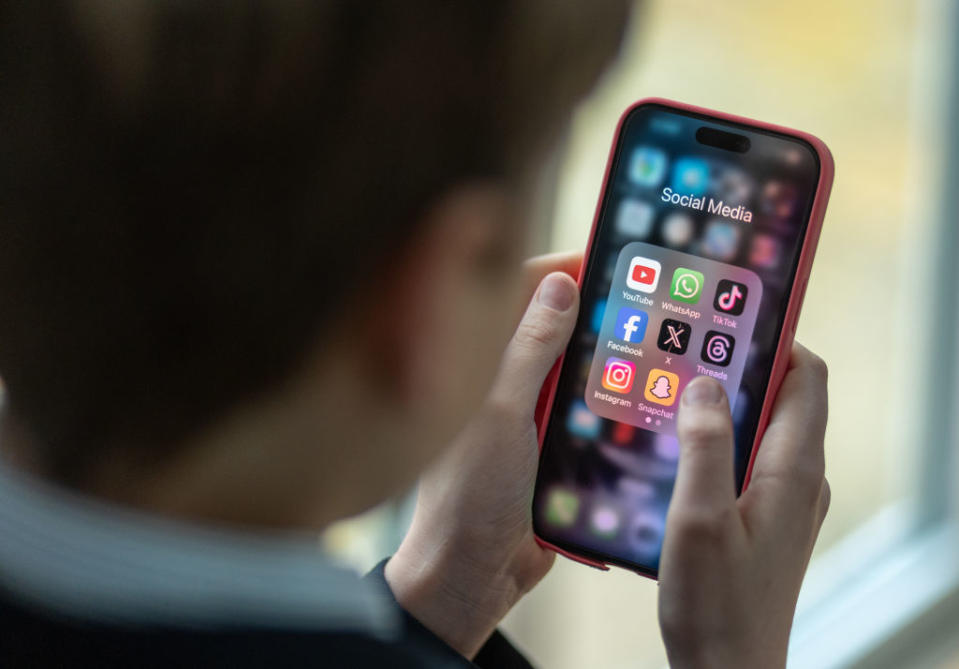
—High school teacher for 19 years
Here's what they agree with instead:
"Building experiences as a family (museum trips, state/national parks, etc.)"
12."Lack of disciplinary measures from parents and lack of manners from children as a result. I once had a father say he thought that all his children would learn table manners and washing their hands in kindergarten. All I could think was, 'They should have learned that already from you before they were old enough to even come to school!!'"
—Principal, 33
Here's what they agree with instead:
"Parents wanting their children to socialize and be with other kids outside of the school setting."
13."Parents not partnering with teachers on their child's education. Education needs to be a three-way street between parents, children, and teachers. Otherwise, it just won't work."
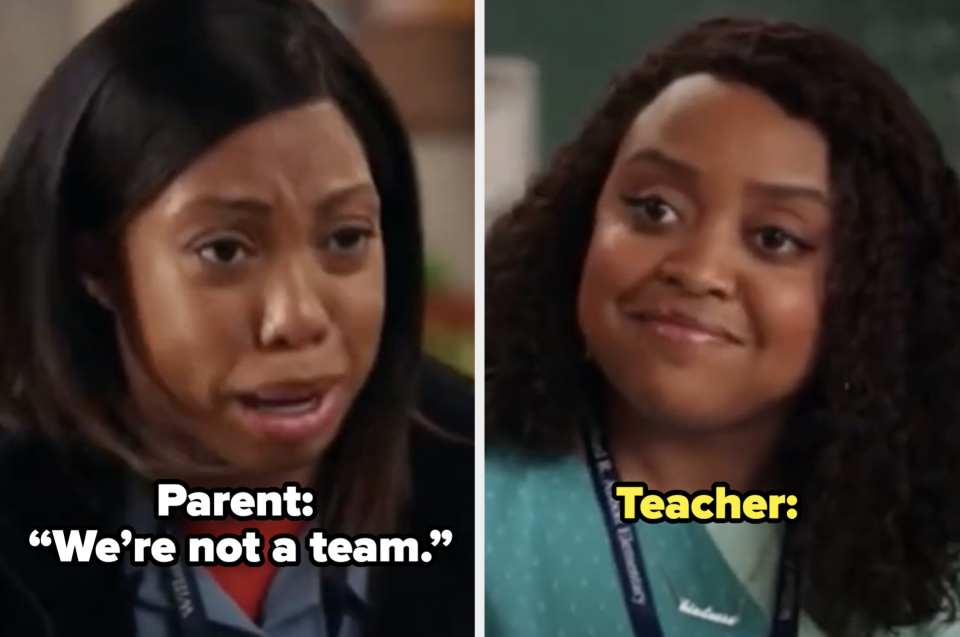
—Retired teacher, 61
Here's what they agree with instead:
"Parents who apologize and are willing to admit they made a mistake. If your child sees that you take responsibility for your own mistakes, they'll be more likely to 1) take responsibility for their own; 2) recognize that mistakes are just a normal part of being human; 3) learn humility; 4) be less afraid of trying new things, since mistakes are seen as 'growth opportunities.'"
And finally:
14."A trend I am concerned with is how many parents create content to teach other parents techniques without formal education or training. Parenting and child development content has an impact regardless of who creates the videos or infographics. What I do not see is parents and caregivers evaluating the content itself (i.e., is this a best practice standard or have evidence behind it?) and taking care to understand who is creating it, like a Speech Language Pathologist versus an adult without credentials who is implementing these techniques at home. This is really lacking when filtering your content and who you are following."
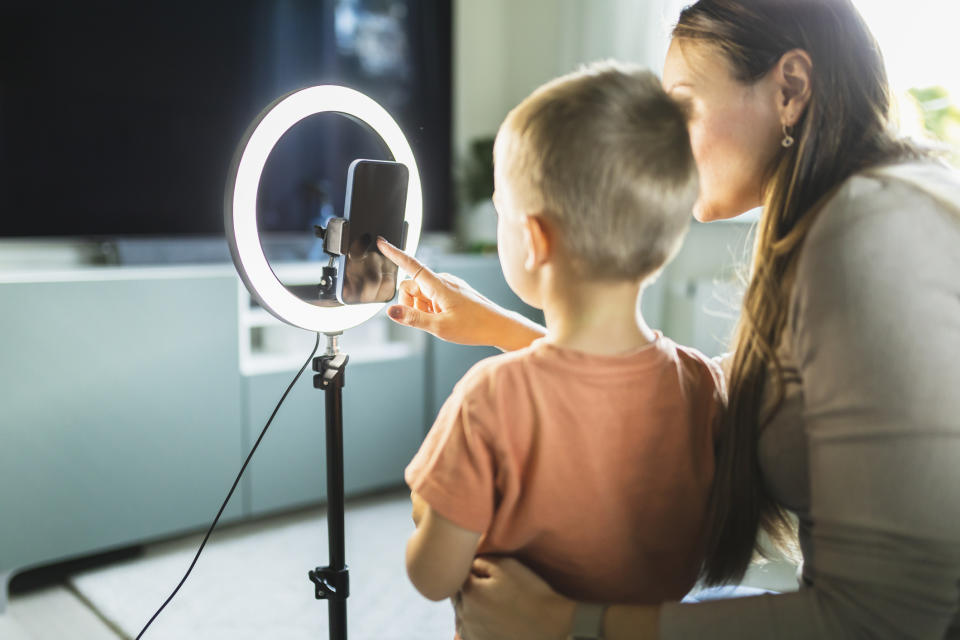
"Someone with videos with over a million views about an approach to playing with your toddler or feeding your infant does not make a content expert. I have been seeing videos related to feeding, play, attachment theory, and psychosocial development or even early intervention techniques, but it is used in ways that are technically confirmation bias, applying a technique to a child that does not need this type of intervention, or with someone without formal education in this topic. Thus, this leads to misinterpretation of a technique or approach to parenting. For example, 'gentle parenting' approaches are not new. Aspects of this approach have been researched and implemented in child development for centuries, but in ways that typically came from advanced study and understanding of child development. Now I hear coworkers citing their TikToks for gentle parenting, and I internally have to tell myself not to speak up and rock the boat, because they are applying a child development principle in an ineffective way. There's a balance with redirection, effective praise, child-directed vs. adult-directed play, and how to support emotional regulation."
—Child development expert and certified child life specialist (8 years); Masters in child psychology
Here's what they agree with instead:
"What content creation supports positively is an understanding that parenting is a skill and disseminates research that was once difficult to get to parents. This is fantastic! It used to be that you had to schedule a session with a play therapist, read a lengthy book by a child psychologist, or get your child into private rehabilitation services (e.g. SLP, PT, OT), and now, those people are creating content that can help support parents while they are on lengthy waitlists for therapy services or early intervention."
If you're an educator, what's a parenting method you disagree with? What do you agree with instead? Tell us in the comments or by using this anonymous Google form.
Note: Some responses have been edited for length and/or clarity.

